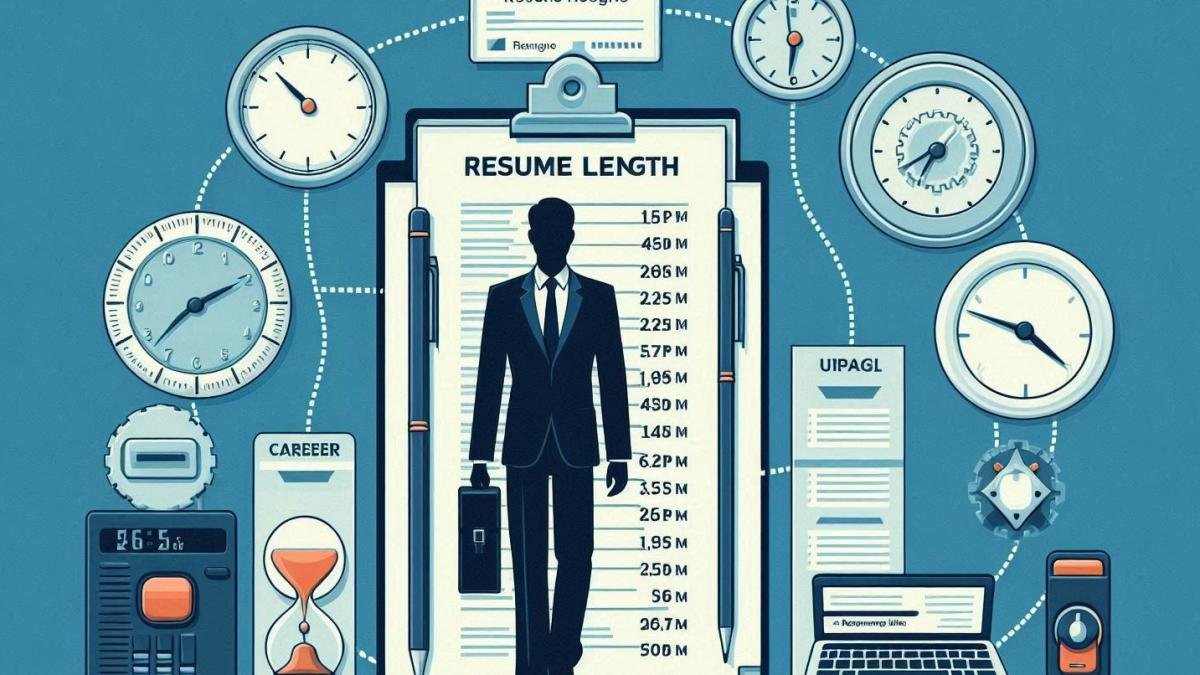Entry-Level Candidates and Recent Graduates: One Page
If you’re a recent graduate or have limited work experience, a one-page resume is generally the best choice. With a shorter career history, it’s important to focus on the most relevant skills, education, and accomplishments without adding unnecessary length. A one-page resume lets hiring managers quickly assess your qualifications, and it forces you to be selective, highlighting only what truly matters.
Tips for Creating a One-Page Resume:
- Focus on Skills and Education: Include relevant coursework, academic achievements, internships, and volunteer work.
- Use Clear Headings: Keep headings for sections like “Education,” “Skills,” and “Experience” bold and consistent for easy reading.
- Be Selective with Information: Avoid lengthy descriptions; instead, use concise bullet points that quickly communicate key achievements.
Mid-Level Professionals: One to Two Pages
For professionals with a few years of experience, typically between three to ten years, a one- to two-page resume is recommended. At this stage, you may have more achievements and responsibilities to showcase, which can justify the need for a slightly longer document. However, keep in mind that every line should still serve a purpose—avoid filling space with information that doesn’t directly support your qualifications.
Tips for Creating a Two-Page Resume:
- Prioritize Recent Experience: Focus on roles and accomplishments from the last five to seven years, as these are often the most relevant to hiring managers.
- Quantify Achievements: Use metrics and numbers to showcase your impact. For example, “Increased sales by 30% over a six-month period.”
- Customize for Each Job Application: Tailor each version of your resume to highlight skills and achievements that match the job requirements.
Senior Professionals and Executives: Two Pages or More
For senior-level professionals with over a decade of experience, a two-page resume is generally acceptable, and for executives, going over two pages can also be appropriate. However, even in these cases, it's best to aim for conciseness. At this level, the resume should emphasize leadership, strategic impact, and industry expertise, while less relevant experience can be summarized or omitted.
Tips for Creating a Multi-Page Resume:
- Emphasize Key Leadership Roles and Projects: Focus on your most senior positions and the projects that had the highest impact.
- Include a Summary Section: A brief executive summary at the top provides an overview of your career and qualifications.
- Use a Strategic Layout: Start with the most relevant information. You might want to add a "Key Achievements" section to make your most notable contributions stand out.
Project-Based or Academic Professionals: Flexible Lengths with Focused Structure
For professionals in project-based fields or academia, the resume (or CV) may naturally require more space. For example, academic CVs often include publications, research experience, and other detailed sections, making them longer than typical resumes. Similarly, professionals in project-based roles (like consulting or contracting) may include multiple completed projects.
Tips for Creating a Project-Based or Academic Resume:
- Group Projects or Publications by Relevance: Instead of listing every detail, group projects by theme or impact.
- Create Sections for Specific Achievements: For academics, “Publications,” “Presentations,” and “Research” sections are common.
- Avoid Redundancy: Avoid repeating information or describing every project in detail—focus on those that best demonstrate your expertise.
SEO Keywords: resume length academic CV, project-based resume tips, resume length advice
General Guidelines for Optimal Resume Length
While resume length varies by experience level, these general tips will help keep your resume concise and effective:
- Use a Professional Layout: Keep formatting simple and consistent with readable fonts and clear section headings.
- Highlight Key Skills Early: Place your skills and key achievements near the top of the resume to grab attention.
- Eliminate Unnecessary Information: Older experiences or skills that are no longer relevant can be removed or minimized to create more space.
- Optimize for Applicant Tracking Systems (ATS): Many resumes are first read by ATS software, so make sure to use relevant keywords from the job description, especially in skill and experience sections.
Conclusion: Tailoring Resume Length to the Job
Finding the right resume length is about balancing detail with conciseness. An effective resume should provide enough information to highlight your strengths without overwhelming the reader. Entry-level candidates should stick to a single page, mid-level professionals may consider one to two pages, and senior executives or project-based professionals might require more space.
When in doubt, remember that quality is more important than quantity—each line should add value and bring you closer to landing the role.






ADD COMMENTS
Your email address will not be published. Required fields are marked *